
Find Help
More Items From Ergsy search
-

What is motor neurone disease?
Relevance: 100%
-

Is motor neurone disease hereditary?
Relevance: 99%
-

What causes motor neurone disease?
Relevance: 99%
-

Are there different types of motor neurone disease?
Relevance: 97%
-

Is there a cure for motor neurone disease?
Relevance: 93%
-
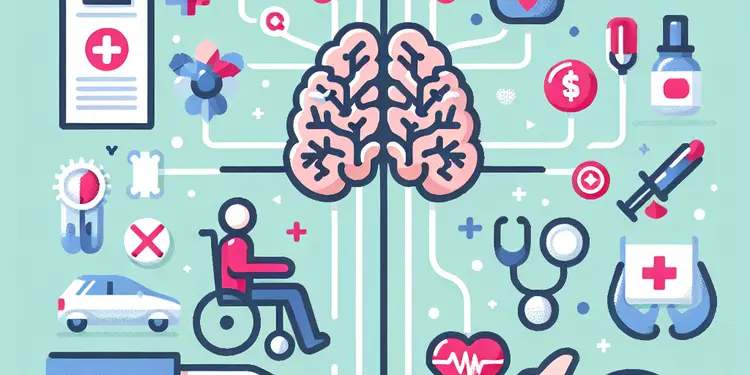
What are the primary symptoms of motor neurone disease?
Relevance: 90%
-

What role do genetics play in motor neurone disease?
Relevance: 88%
-
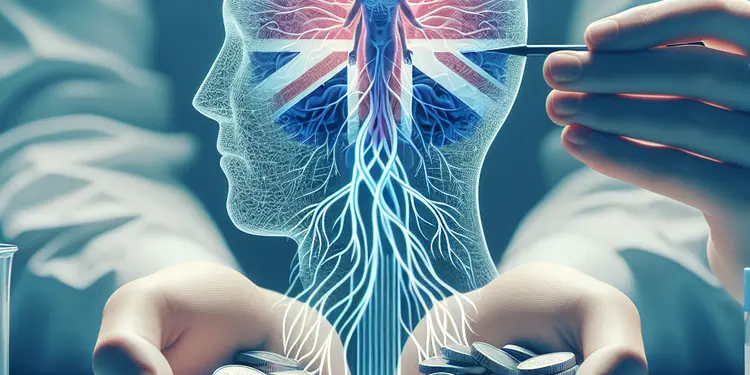
What treatments are available for motor neurone disease?
Relevance: 87%
-

How is motor neurone disease diagnosed?
Relevance: 86%
-

How is breathing affected by motor neurone disease?
Relevance: 85%
-
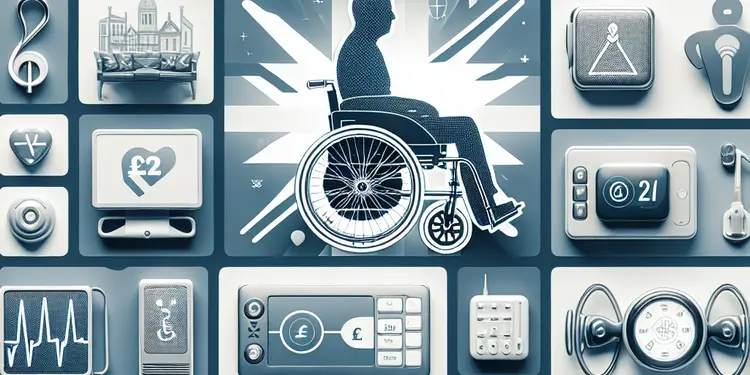
What assistive devices can help people with motor neurone disease?
Relevance: 85%
-

Motor neurone disease Julie's story | NHS
Relevance: 81%
-
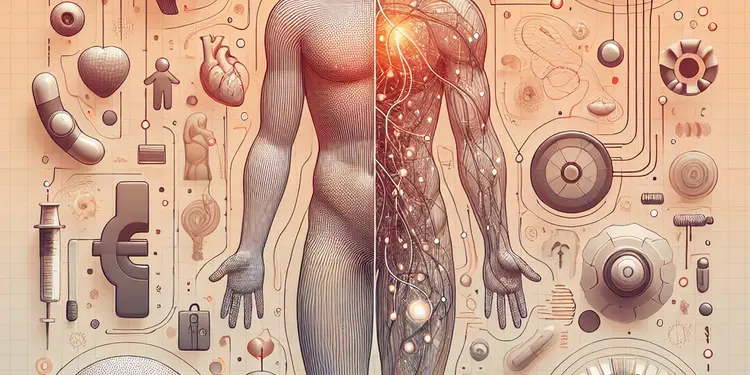
How does motor neurone disease affect the body?
Relevance: 80%
-
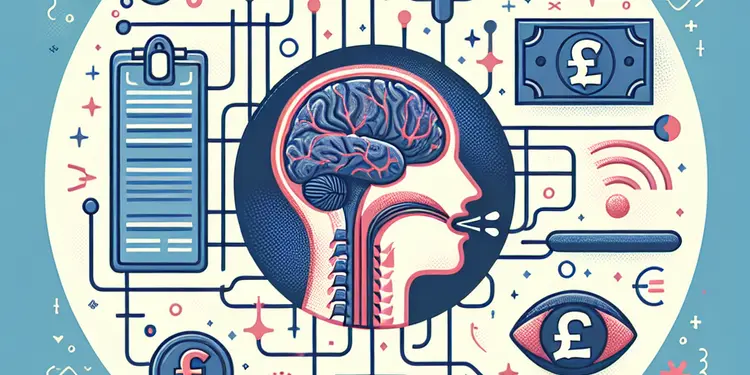
How does motor neurone disease impact swallowing?
Relevance: 79%
-
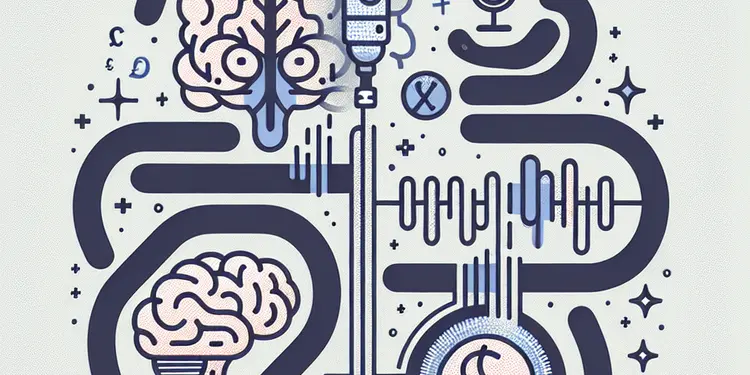
How does motor neurone disease affect speech?
Relevance: 79%
-

Who is at risk for motor neurone disease?
Relevance: 77%
-

Can lifestyle changes impact motor neurone disease progression?
Relevance: 75%
-

Voice banking service helps people live with motor neurone disease
Relevance: 74%
-

What is the life expectancy after a motor neurone disease diagnosis?
Relevance: 74%
-

How can caregivers support someone with motor neurone disease?
Relevance: 70%
-

What research is being done on motor neurone disease?
Relevance: 66%
-

Are there support groups for individuals with motor neurone disease?
Relevance: 64%
-

How does Huntington's disease affect movement?
Relevance: 41%
-

What is Parkinson's disease?
Relevance: 38%
-

Who is at risk for flesh-eating disease?
Relevance: 37%
-

What causes Huntington's disease?
Relevance: 36%
-

Who is at risk of developing Crohn's disease?
Relevance: 35%
-

Who is at risk of developing Alzheimer's disease?
Relevance: 35%
-

What causes Alzheimer's disease?
Relevance: 33%
-

What research is being done on Huntington's disease?
Relevance: 33%
-

What are the symptoms of Huntington's disease?
Relevance: 32%
-

Is Huntington's disease fatal?
Relevance: 31%
-

Can Huntington's disease be prevented?
Relevance: 29%
-

New Study Links Diet Soda to Increased Risk of Heart Disease
Relevance: 29%
-

What is Huntington's disease?
Relevance: 27%
-

Can Huntington's disease be cured?
Relevance: 26%
-

Does fiber reduce the risk of certain diseases?
Relevance: 26%
-

What is my risk of kidney failure with CKD (chronic kidney disease) | UHL NHS Trust
Relevance: 26%
-

How is Huntington's disease diagnosed?
Relevance: 26%
-

An introduction to frontotemporal dementia (FTD) (part 1/3)
Relevance: 25%
Who is at Risk for Motor Neurone Disease?
Motor neurone disease (MND) is a condition that affects the nerves in the brain and spinal cord, leading to muscle weakness and atrophy. While the exact cause of MND is not fully understood, certain factors have been identified that may increase an individual's risk of developing the disease. Understanding these risk factors is important for early detection and potential prevention strategies.
Genetic Factors
A small percentage of MND cases in the UK are inherited. This form of the disease is known as familial MND and accounts for about 5-10% of all cases. Mutations in various genes, such as the C9orf72, SOD1, TARDBP, and FUS genes, have been associated with an increased risk of developing familial MND. People with a family history of MND may consider genetic counseling to understand their risk better.
Age
Age is one of the most significant risk factors for MND. The disease most commonly affects individuals between the ages of 50 and 70. However, it is important to note that MND can occur at any age, even though it is relatively rare in younger individuals. The risk of developing MND increases with age, making middle-aged and older adults more susceptible to the condition.
Gender
MND affects men more frequently than women. It is not entirely clear why this gender difference exists, but it suggests that biological and possibly environmental factors may play a role in the development of the disease. Research is ongoing to determine if and how gender contributes to MND risk.
Environmental Factors
Some studies suggest that certain environmental exposures might increase the risk of developing MND. These exposures include heavy metal toxins, such as lead, pesticides, and prolonged contact with certain chemicals. Occupational exposure to electrical shocks and intense physical activity has also been theorized as potential risk factors, although conclusive evidence is lacking. Further research is needed to establish these links.
Lifestyle Factors
While lifestyle factors such as diet, exercise, and smoking have been investigated, there is currently no strong evidence that they directly influence MND risk. However, maintaining a healthy lifestyle is generally advisable as it can benefit overall health and potentially mitigate other risk factors as well.
Conclusion
MND is a complex disease with multiple potential risk factors. While genetic components play a role, the disease's sporadic nature suggests that a combination of genetic and environmental factors might contribute to its onset. Ongoing research aims to provide greater insight into these risk factors with the hopes of developing preventive strategies and more effective treatments for those affected by MND.
Who Can Get Motor Neurone Disease?
Motor neurone disease (MND) is a disease that affects nerves in the brain and back. This makes muscles weak and smaller. We don’t know exactly why people get MND, but some things can make it more likely. Knowing these things can help find MND early and maybe stop it from happening.
Family History
A few people in the UK get MND because it runs in the family. This is called familial MND. It happens in about 5-10% of cases. Changes in some genes like C9orf72, SOD1, TARDBP, and FUS can make MND more likely to run in families. If someone in your family had MND, you can see a special doctor to learn more about your chances.
Getting Older
Getting older is a big reason people get MND. It mostly affects people aged between 50 and 70. But, anyone can get MND, even if it’s not common in young people. As people get older, their chances of getting MND go up. This is why it happens more in middle-aged and older people.
Being a Man or Woman
More men get MND than women. We don’t know why this happens, but it might be because of things in the body or environment. Researchers are studying this to understand how being a man or woman affects MND risk.
Things Around You
Some studies say that being around certain things might make MND more likely. This includes heavy metals like lead, pest killers, and some chemicals. Working with electric shocks and being very active might also be reasons, but we need more evidence to be sure. More studies are needed to understand this better.
How You Live
Experts have looked at things like diet, exercise, and smoking. Right now, there isn’t strong proof they change the risk of getting MND. But living healthily is good for you and might help with other things that can make MND more likely.
Summary
MND is a complicated disease with many possible reasons. Genes can be one reason, but random factors also play a big role. Research is trying to find out more about these reasons. This way, we can work on stopping MND or treating it better for people who have it.
Frequently Asked Questions
Useful Links
Have you found an error, or do you have a link or some information you would like to share? Please let us know using the form below.
-->
This website offers general information and is not a substitute for professional advice.
Always seek guidance from qualified professionals.
If you have any medical concerns or need urgent help, contact a healthcare professional or emergency services immediately.
Some of this content was generated with AI assistance. We’ve done our best to keep it accurate, helpful, and human-friendly.
- Ergsy carfully checks the information in the videos we provide here.
- Videos shown by Youtube after a video has completed, have NOT been reviewed by ERGSY.
- To view, click the arrow in centre of video.
- Most of the videos you find here will have subtitles and/or closed captions available.
- You may need to turn these on, and choose your preferred language.
- Go to the video you'd like to watch.
- If closed captions (CC) are available, settings will be visible on the bottom right of the video player.
- To turn on Captions, click settings .
- To turn off Captions, click settings again.
More Items From Ergsy search
-

What is motor neurone disease?
Relevance: 100%
-

Is motor neurone disease hereditary?
Relevance: 99%
-

What causes motor neurone disease?
Relevance: 99%
-

Are there different types of motor neurone disease?
Relevance: 97%
-

Is there a cure for motor neurone disease?
Relevance: 93%
-

What are the primary symptoms of motor neurone disease?
Relevance: 90%
-

What role do genetics play in motor neurone disease?
Relevance: 88%
-

What treatments are available for motor neurone disease?
Relevance: 87%
-

How is motor neurone disease diagnosed?
Relevance: 86%
-

How is breathing affected by motor neurone disease?
Relevance: 85%
-

What assistive devices can help people with motor neurone disease?
Relevance: 85%
-

Motor neurone disease Julie's story | NHS
Relevance: 81%
-

How does motor neurone disease affect the body?
Relevance: 80%
-

How does motor neurone disease impact swallowing?
Relevance: 79%
-

How does motor neurone disease affect speech?
Relevance: 79%
-

Who is at risk for motor neurone disease?
Relevance: 77%
-

Can lifestyle changes impact motor neurone disease progression?
Relevance: 75%
-

Voice banking service helps people live with motor neurone disease
Relevance: 74%
-

What is the life expectancy after a motor neurone disease diagnosis?
Relevance: 74%
-

How can caregivers support someone with motor neurone disease?
Relevance: 70%
-

What research is being done on motor neurone disease?
Relevance: 66%
-

Are there support groups for individuals with motor neurone disease?
Relevance: 64%
-

How does Huntington's disease affect movement?
Relevance: 41%
-

What is Parkinson's disease?
Relevance: 38%
-

Who is at risk for flesh-eating disease?
Relevance: 37%
-

What causes Huntington's disease?
Relevance: 36%
-

Who is at risk of developing Crohn's disease?
Relevance: 35%
-

Who is at risk of developing Alzheimer's disease?
Relevance: 35%
-

What causes Alzheimer's disease?
Relevance: 33%
-

What research is being done on Huntington's disease?
Relevance: 33%
-

What are the symptoms of Huntington's disease?
Relevance: 32%
-

Is Huntington's disease fatal?
Relevance: 31%
-

Can Huntington's disease be prevented?
Relevance: 29%
-

New Study Links Diet Soda to Increased Risk of Heart Disease
Relevance: 29%
-

What is Huntington's disease?
Relevance: 27%
-

Can Huntington's disease be cured?
Relevance: 26%
-

Does fiber reduce the risk of certain diseases?
Relevance: 26%
-

What is my risk of kidney failure with CKD (chronic kidney disease) | UHL NHS Trust
Relevance: 26%
-

How is Huntington's disease diagnosed?
Relevance: 26%
-

An introduction to frontotemporal dementia (FTD) (part 1/3)
Relevance: 25%


